The primitive chariot was invented for the first time in the eleventh century by an archer, hardly anyone knows this story but thanks to him many were inspired to create cars, remember that the first car appeared in 1885 you know where the designation "horses of power"??? because of the carriages that were displaced by horses.😮📚🤯
La carroza primitiva fue inventada por primera vez en el siglo XI por un arquero, casi nadie conoce esta historia pero gracias a el muchos se inspiraron para crear los automoviles, recordemos que el primer automovil aparecio en 1885 sabes de donde viene la designacion "caballos de potencia"??? pues de las carrozas que eran desplazadas por caballos.🐴🙇♂️
To be more specific, the first chariot was invented by the man: "Itimiano" who had the idea of creating a colossal war machine that was moved by more than 24 horses, its structure consisted of two axles and four wheels, let us remember that in that century, religion had a lot of weight in society, so the floats had Christian designs!😮🤔
Para ser mas especificio la primera carroza fue inventada por el señor: "Itimiano" quien tuvo la idea de crear una maquina de guerra colosal que era movida por mas de 24 caballos, su estructura constaba con dos ejes y cuatro ruedas, recordemos que en ese siglo la religion tenia mucho peso en la sociedad por tanto las carrozas llevaban diseños cristianos!😱😱
The floats were not only a symbol of military power but also became a tool of POWER, not everyone at the time had access to floats, when humanity enters the "XII" century the floats are undergoing alterations and begin to decrease in its size and weight, little by little, designs and luxury additions were added to it until it became "the car of high society".🤔👸🤴
Las carrozas no solo eran simbolo de poderio militar si no que pasaron a ser una herramienta de PODER, no todos en la epoca tenian acceso de carrozas, cuando la humanidad entra en el siglo "XII" las carrozas van sufriendo alteraciones y comienzan a disminuir en su tamaño y peso, poco a poco se le fueron añadiendo diseños y agregados de lujo hasta ser "el automovil de la alta sociedad".🤑🤑
When we get to the fifteenth and seventeenth centuries, the carriages begin to symbolize the royalty of the monarchy and literally there was "competition between princesses" to see who had the most luxurious carriage, and what they did was place accessories in gold, precious stones, velvet Only in the 17th century did floats with windows appear.👸👸🤑
Cuando llegamos a los siglos XV y XVII los carruajes comienzan a simbolizar a la realeza de la monarquia y literalmente existian "competencia entre princesas" para ver quien tenia la carroza mas lujosa, y lo que hacian era colocar accesorios en oro, piedras preciosas, terciopelo, solo en el siglo XVII es que aparecen las carrozas con ventanas.🐴🙇♂️

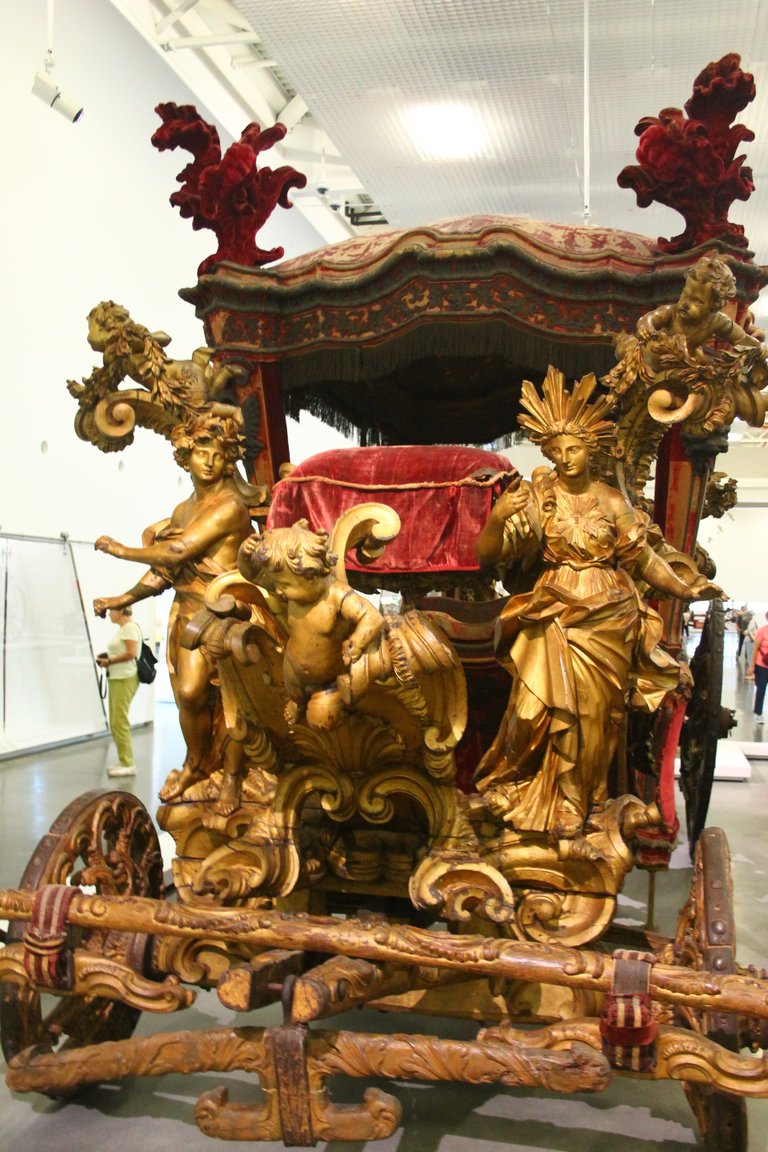
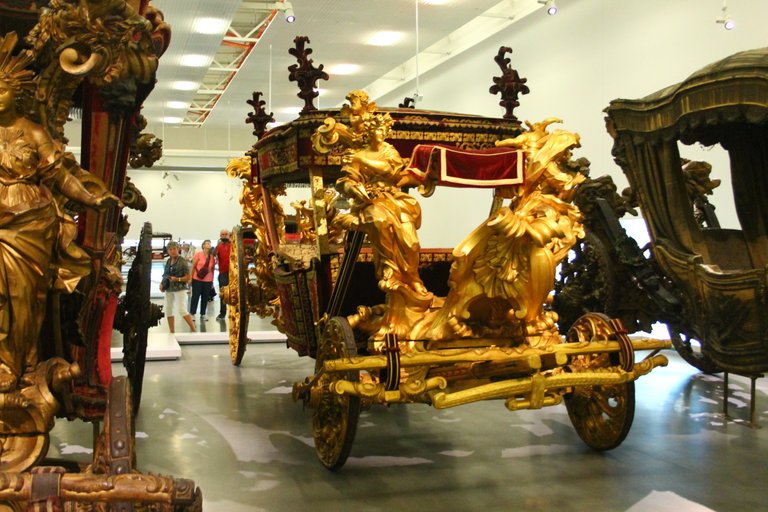
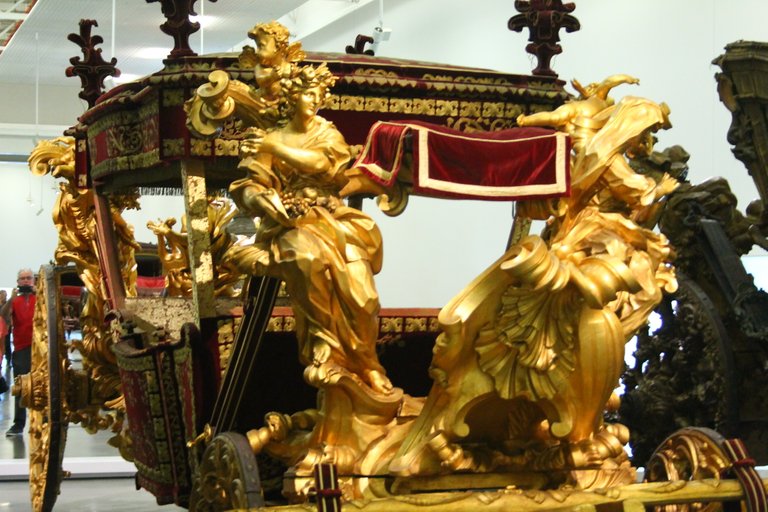
Arriving further into the 20th century, floats were still used but they had another type of purpose, they were only used to transport wealthy families "en masse" to go to celebrations such as parties, or marriages. A legacy that is still preserved and that is a custom in some countries is to build giant parade floats and compete for which one is the most decorated, a very popular event in the United States.🤴👸🤓
Llegando mas al siglo XX aun las carrozas se utilizaban pero tenian otro tipo de proposito, solo eran empleadas para transportar a las familias adineradas "en masa" para ir a celebraciones como fiestas, o matrimonios. Un legado que aun se conserva y que es una costumbre en algunos paises es en construir carrozas gigantes para desfile y competir por cual es la mas decorada, un evento muy popular en estados unidos💎💎💎

About the museum👸👸 / Sobre el museo🙇♂️👨💻🧠
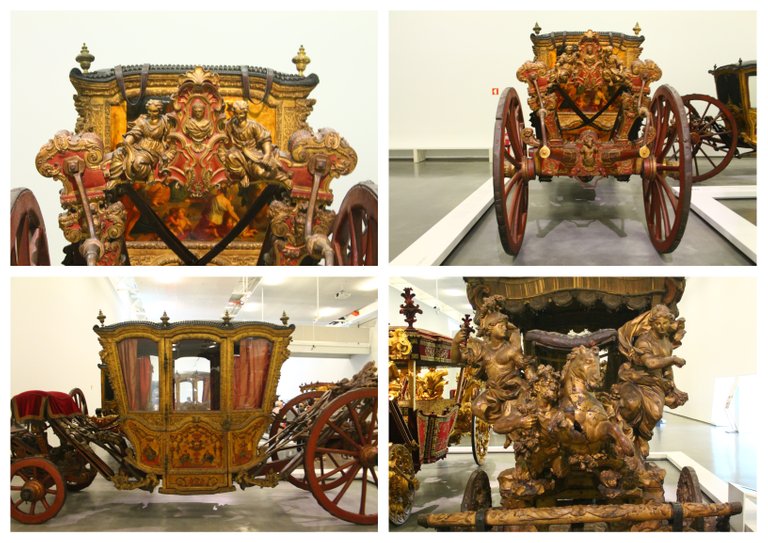
The museum has floats dating from the 17th to the 19th centuries, it just started as a collection of different floats that were used in Portugal and is currently exhibited as a museum which was founded in 1905, it is believed to be one of the museums most visited in Portugal, the person to build the museum was the queen "Amelia" who had a private collection of carriages, many of the carriages are of origin: "Spanish, French, German, Portuguese, English".🌏🚙
El museo cuenta con carrozas que datan desde los siglos XVII al XIX, acabo por comenzar como una coleccion de diferentes carrozas que fueron utilizadas en Portugal y actualmente se exhibe como un museo el cual fue fundado en 1905, se cree que es uno de los museos mas visitados de Portugal, la persona en construir el museo fue la reina "Amelia" quien tenia una coleccion privada de carruajes, muchas de las carrozas son de origen: "espanol, frances, aleman, portugues, ingles". 🤴🙇♂️🧠

The most precious object?🏆🤴 / El objeto mas preciado?🙇♂️👨💻🧠

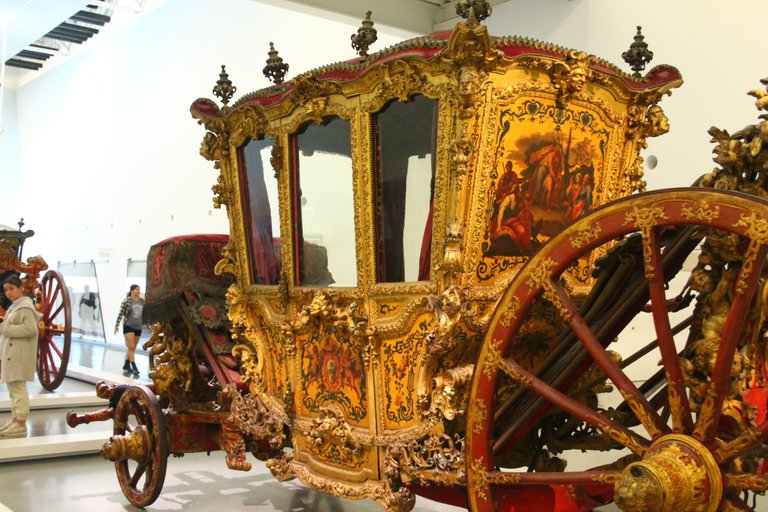
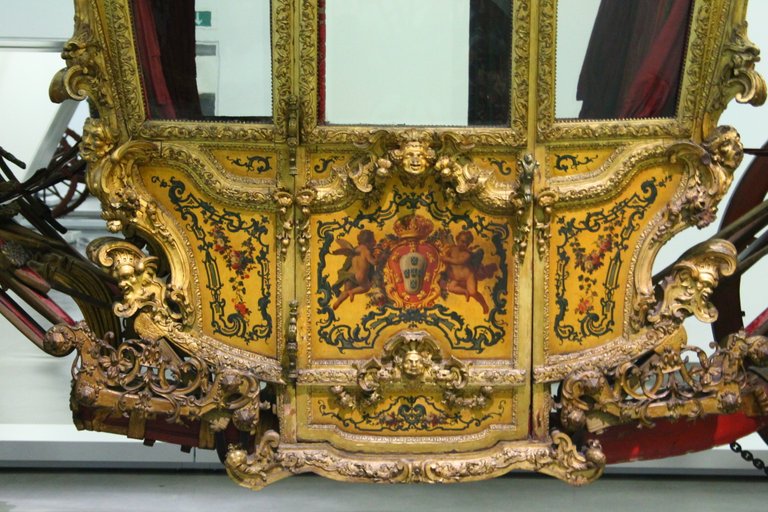
I say object because the museum also restores ancient weapons and military clothing, but the carriage with the most historical value is one created in the 16th century, nothing more and nothing less than King Philip II sat on it, it was used to make long trips from Portugal to Spain in 1609 incredible right?😱🤩🤴
Digo objeto porque el museo tambien restaura armas antiguas y ropas militares, pero la carroza con mas valor historico es una creada en el siglo XVI, en ella se sento nada mas y nada menos que el rey Filipe II, era empleada para realizar viajes largos desde Portugal hasta España en 1609 increible no?🌏🙇♂️

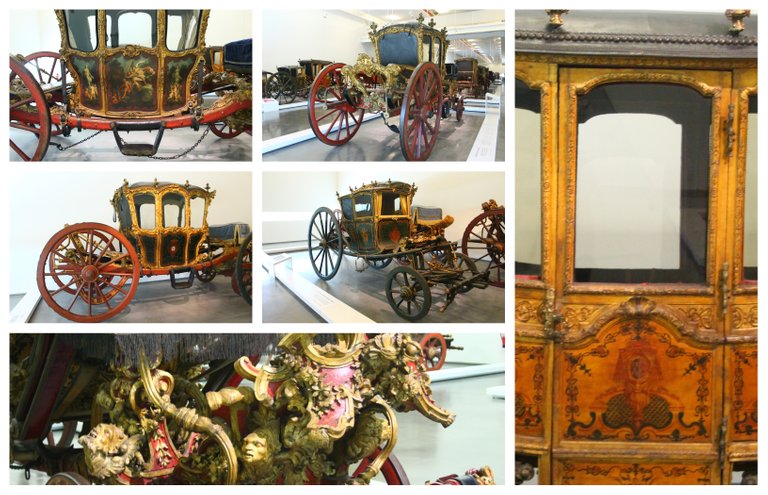
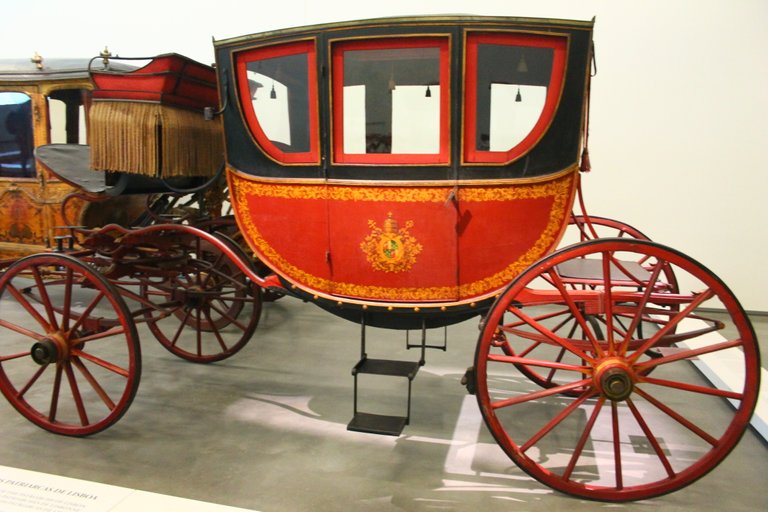

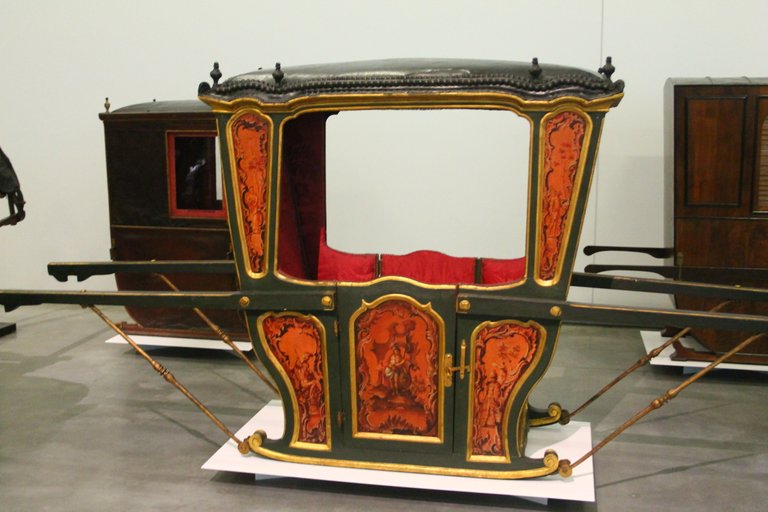
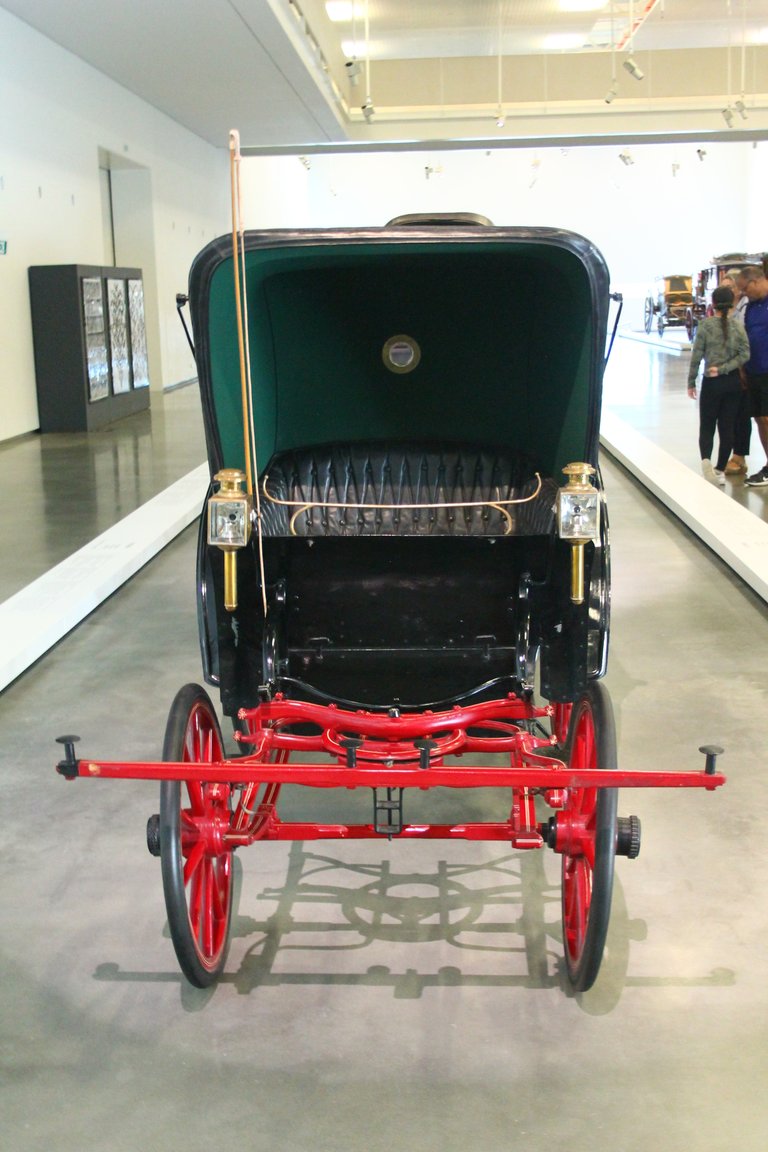
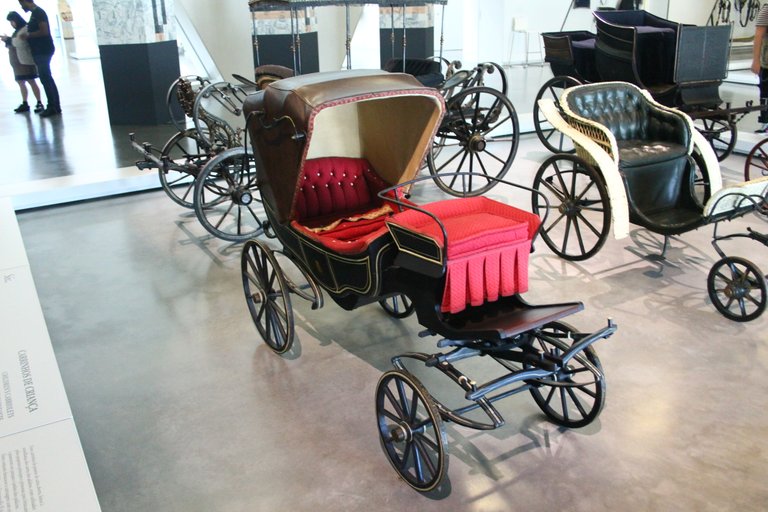
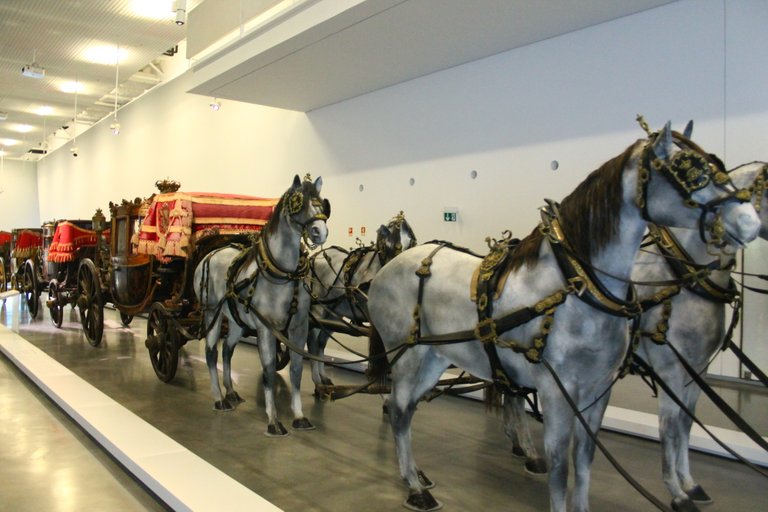
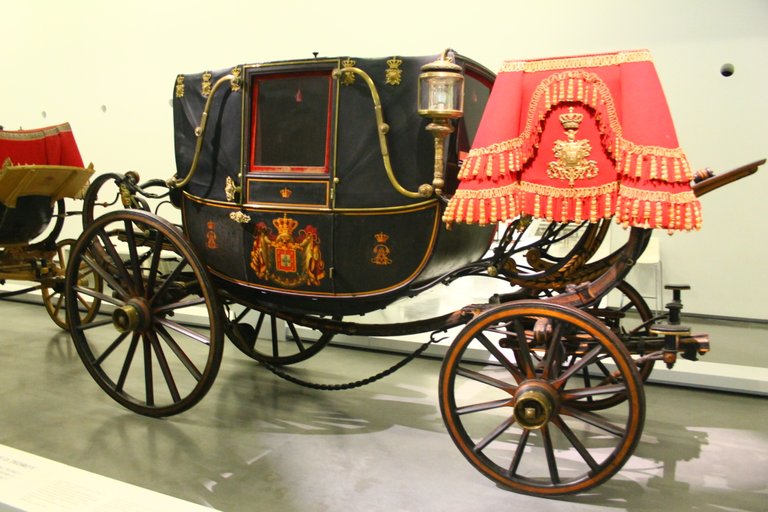
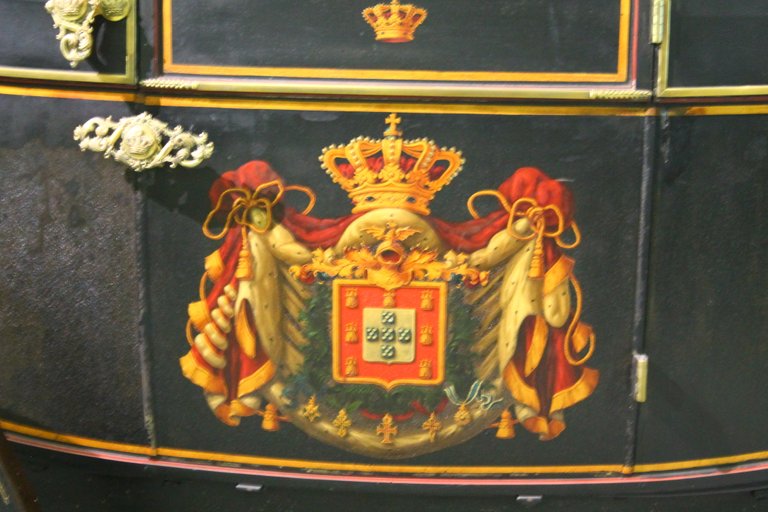
There is another very valuable carriage in the museum and it is one that was built in the 17th century which "Pope Clement XI" gave to King John V, finally there are 3 that were also used for diplomatic purposes!🤴👸
Hay otra carroza muy valiosa en el museo y es una que fue construida en el siglo XVII la cual el "papa clemente XI" le obsequio al rey Juan V, por ultimo hay 3 que tambien fueron usadas con fines diplomaticos!😱😱

Did you know??🏆🤴 / Sabias que??🙇♂️👨💻🧠
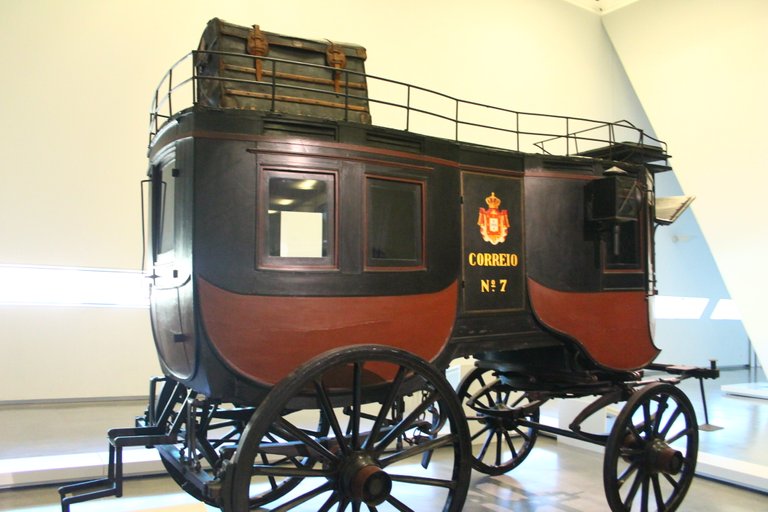
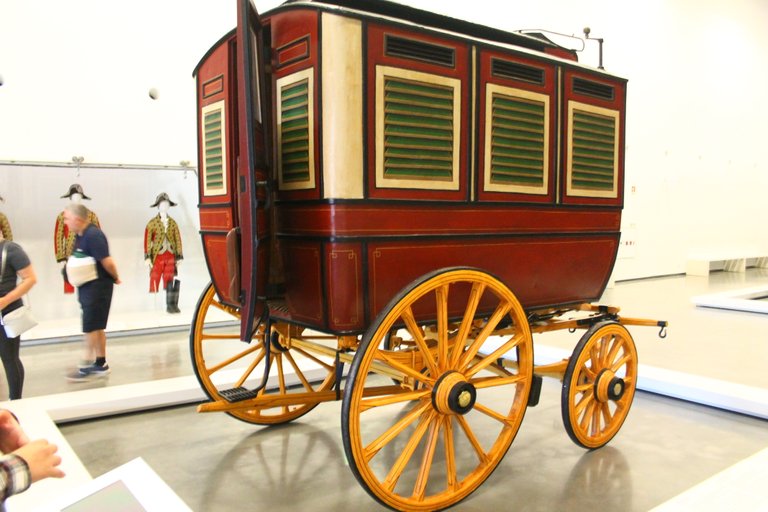
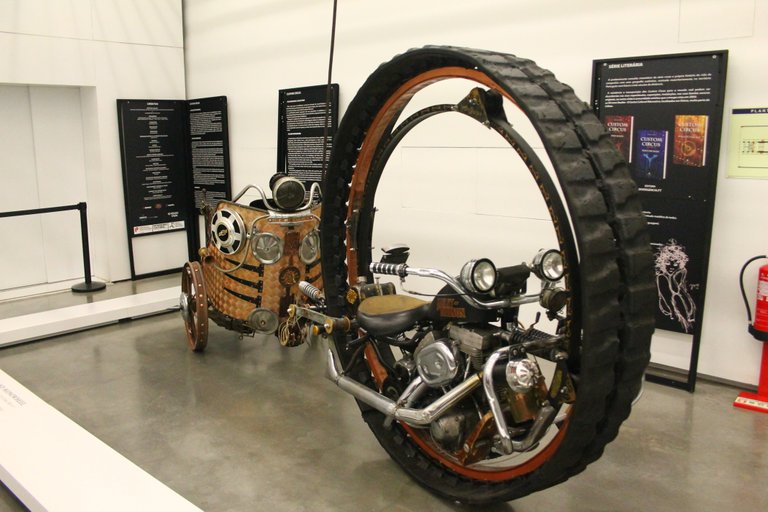
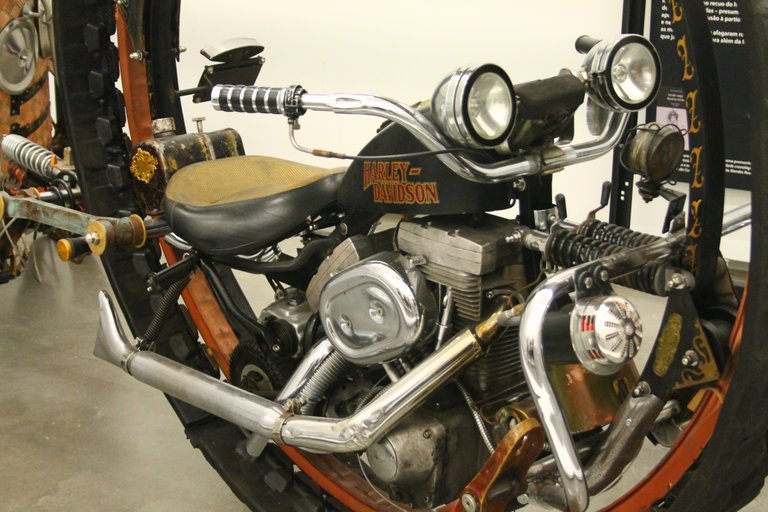
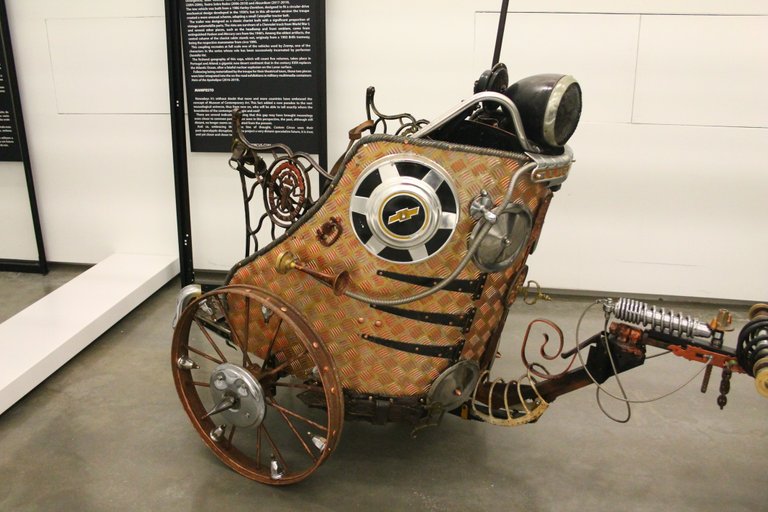
The floats were not only for transportation purposes for people, floats had also been built that were in charge of carrying the mail between regions, just as there were floats that took prisoners to the jails!🤔😮
Las carrozas no solo tenian fines de transporte para persona, tambien se habian construido carrozas que eran las encargadas de llevar el correo entre regiones, al igual que tambien existieron carrozas que llevaban presos hacia las carceles!🤯🤯

DNA is an organization to foster and DENSIFY NATURE-APPRECIATION which aims to establish REPORTS OF BIODIVERSITY DATA that is contributed by all of us Hiveans and subsequently cataloged.
Therefore DNA searches for HIGH-QUALITY posts that aim to DESCRIBE and determine the BIODIVERSITY AROUND YOU with added EXPLANATIONS and INFORMATION. For these informative posts they offer a CURATION SERVICE using the @dna.org account. It is also a CURATION TRAIL. Just add the #dna TAG if you think that any of your posts is what they are looking for.
GRACIAS POR LEERME / THANKS FOR READING ME /FOTOS DE MI PROPIEDAD PHOTOS OF MY PROPERTY)🙂🧠🦾👍
Referencias bibliograficas / Sources:
This post is a compilation of information extracted from the cited pages, for direct quotations the following is used: ""

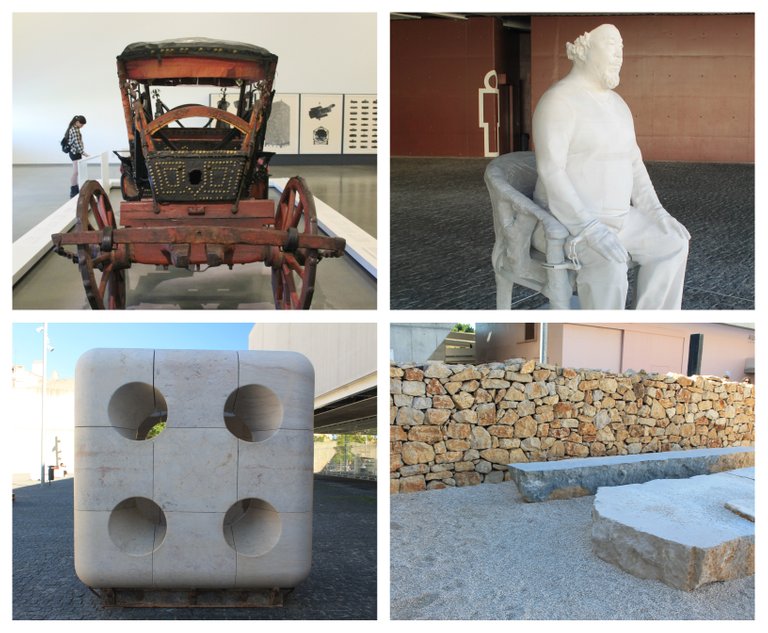

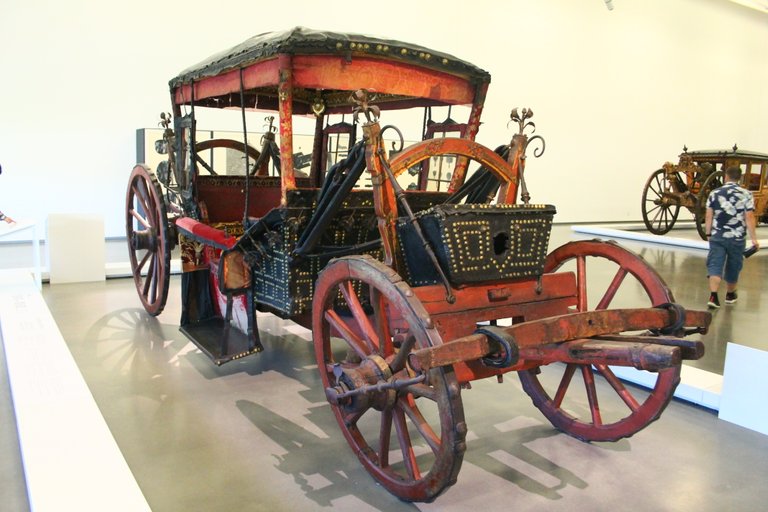



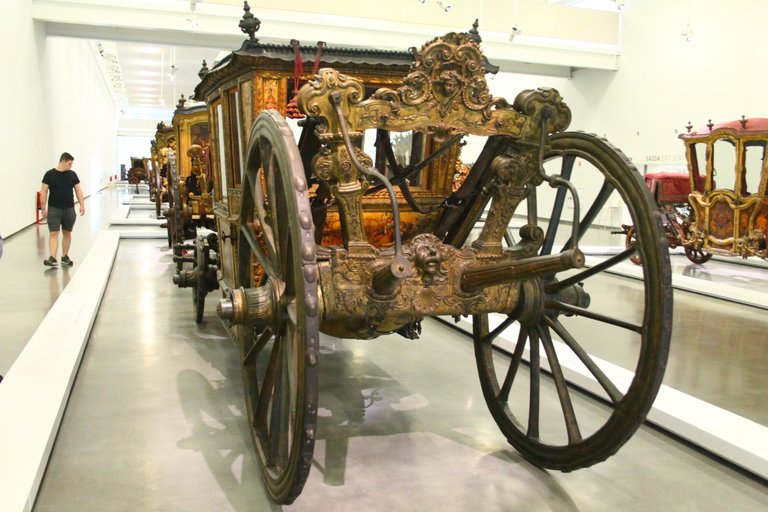

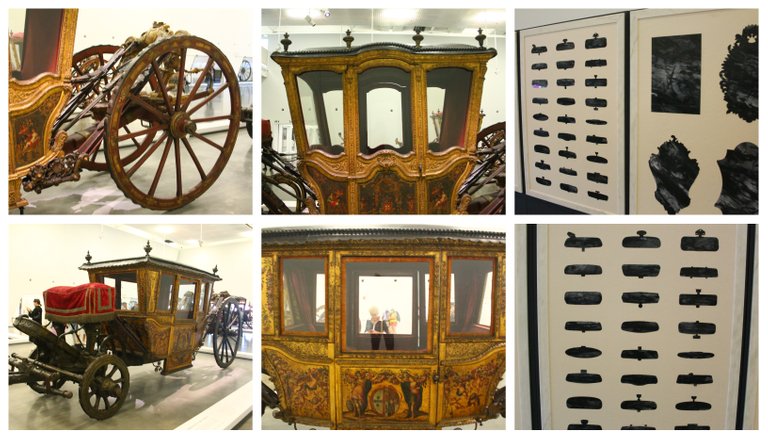

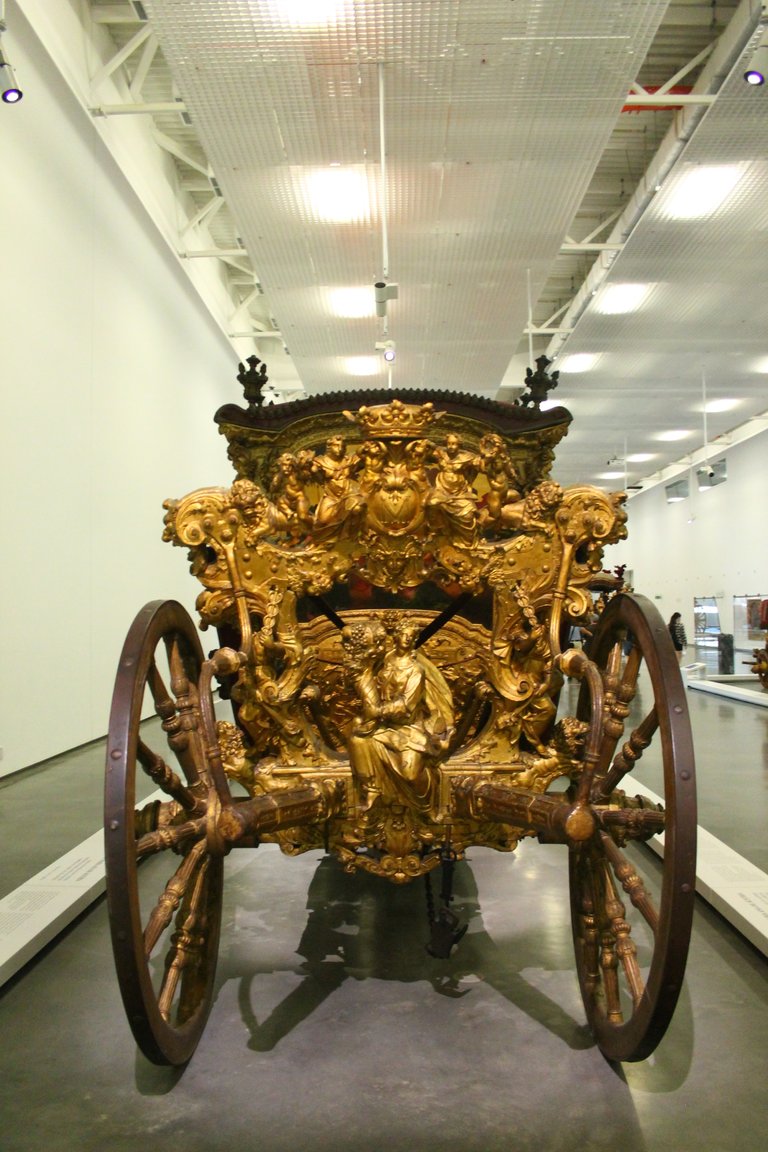
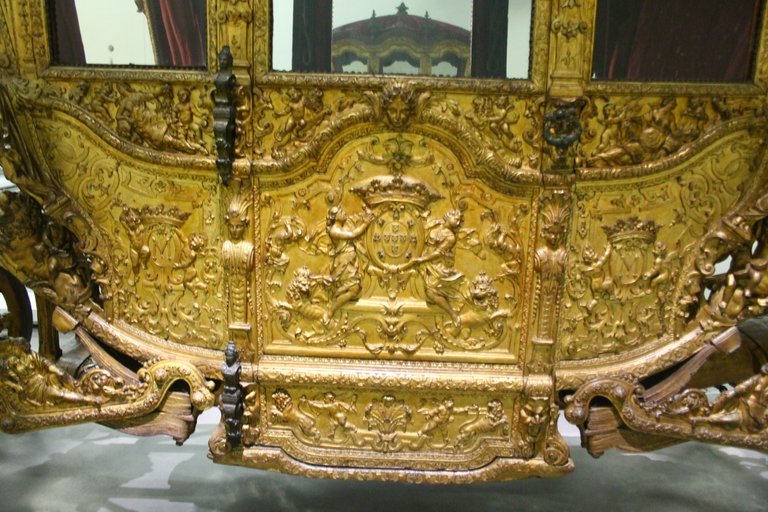
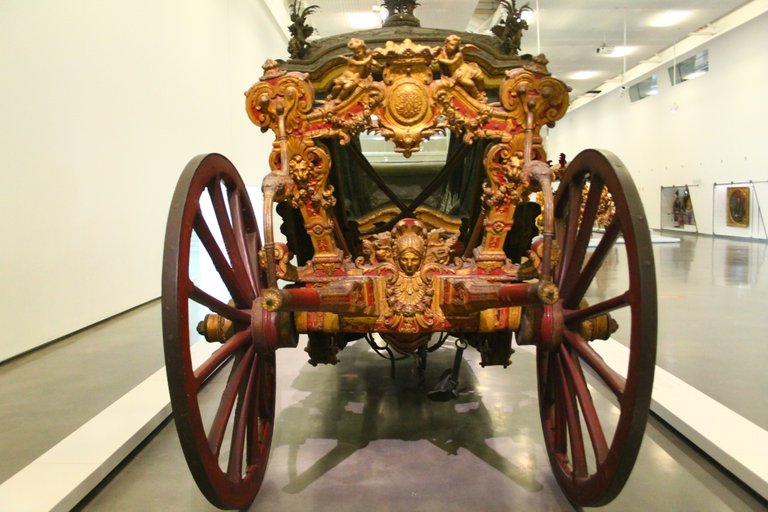
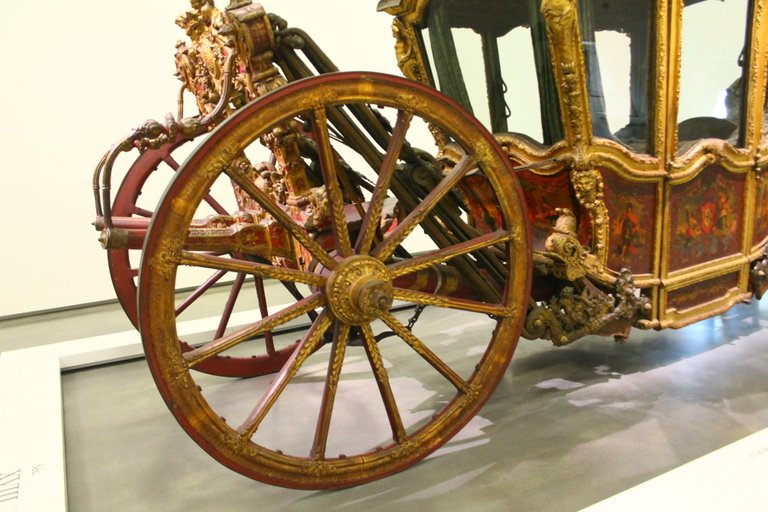
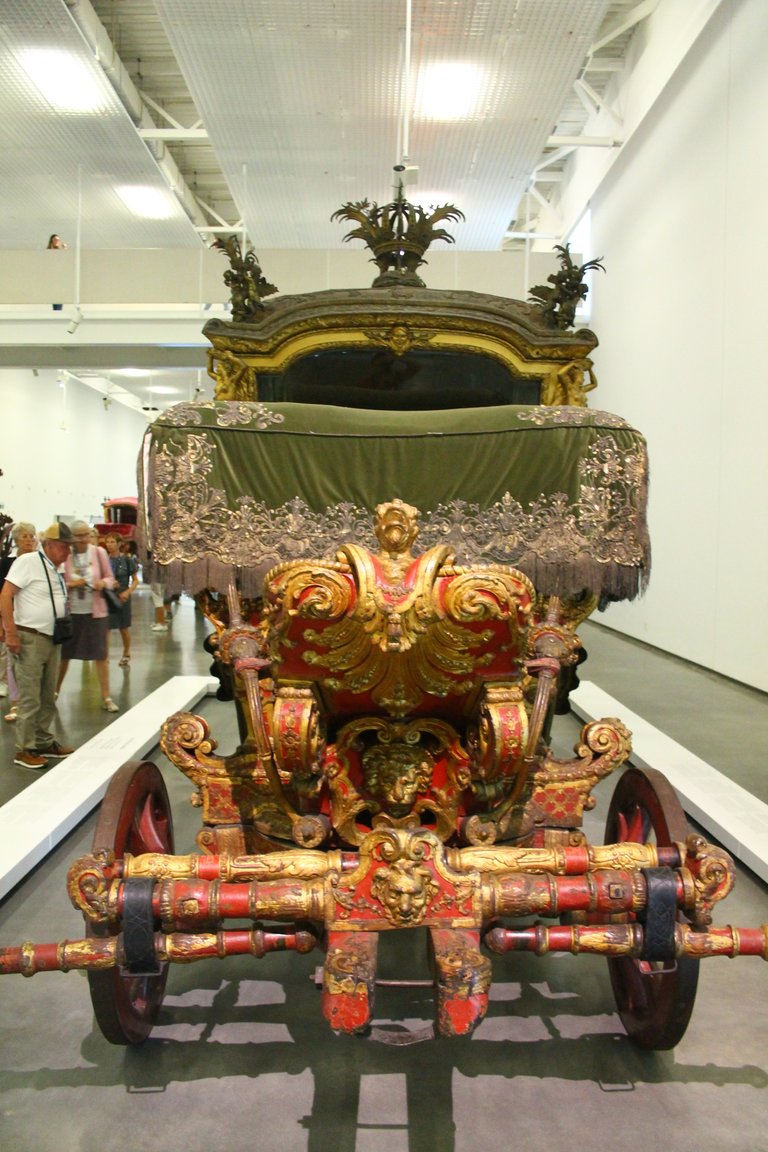


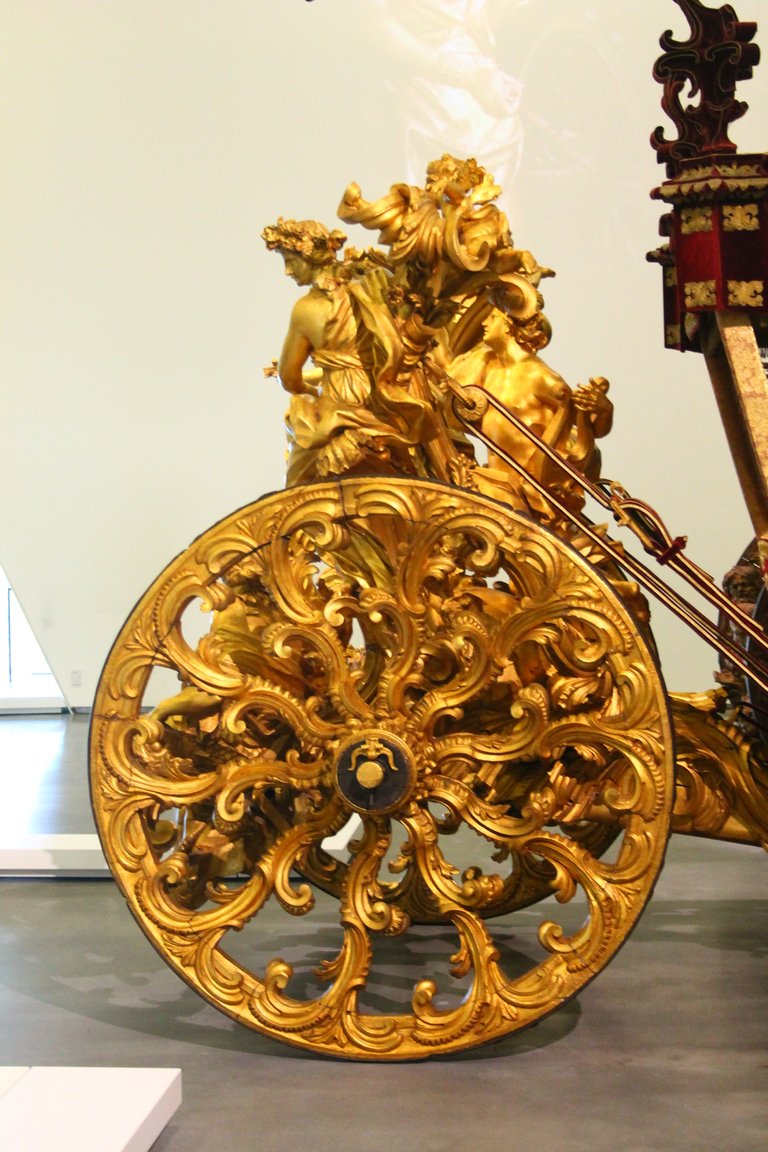



























@pixresteemer(9/10) gave you LUV. tools | wallet | discord | community | <>< daily
tools | wallet | discord | community | <>< daily
HiveBuzz.me NFT for Peace
Congratulations, your post has been added to Pinmapple! 🎉🥳🍍
Did you know you have your own profile map?
And every post has their own map too!
Want to have your post on the map too?
Everything in the past always amazes me especially when it has historical value. Interesting too how transportation has evolved through these museum
https://twitter.com/1564180940230131713/status/1581765833784975360
https://twitter.com/1536718447354208256/status/1581794135459012608
The rewards earned on this comment will go directly to the people( @macjulez, @joseg ) sharing the post on Twitter as long as they are registered with @poshtoken. Sign up at https://hiveposh.com.
Your content has been voted as a part of Encouragement program. Keep up the good work!
Use Ecency daily to boost your growth on platform!
Support Ecency
Vote for new Proposal
Delegate HP and earn more
Every museum has a the skill to increase our knowledge about a subject! This one bring us different types of coaches, important to understand how was the evolution of this thing to have ideas for new types of transportation

!1UP
You have received a 1UP from @gwajnberg!
@stem-curator, @vyb-curator, @pob-curator
And they will bring !PIZZA 🍕.
Learn more about our delegation service to earn daily rewards. Join the Cartel on Discord.
Thanks for your contribution to the STEMsocial community. Feel free to join us on discord to get to know the rest of us!
Please consider delegating to the @stemsocial account (85% of the curation rewards are returned).
You may also include @stemsocial as a beneficiary of the rewards of this post to get a stronger support.
Su post ha sido valorado por @ramonycajal
¡Sorprendente! Me encanta